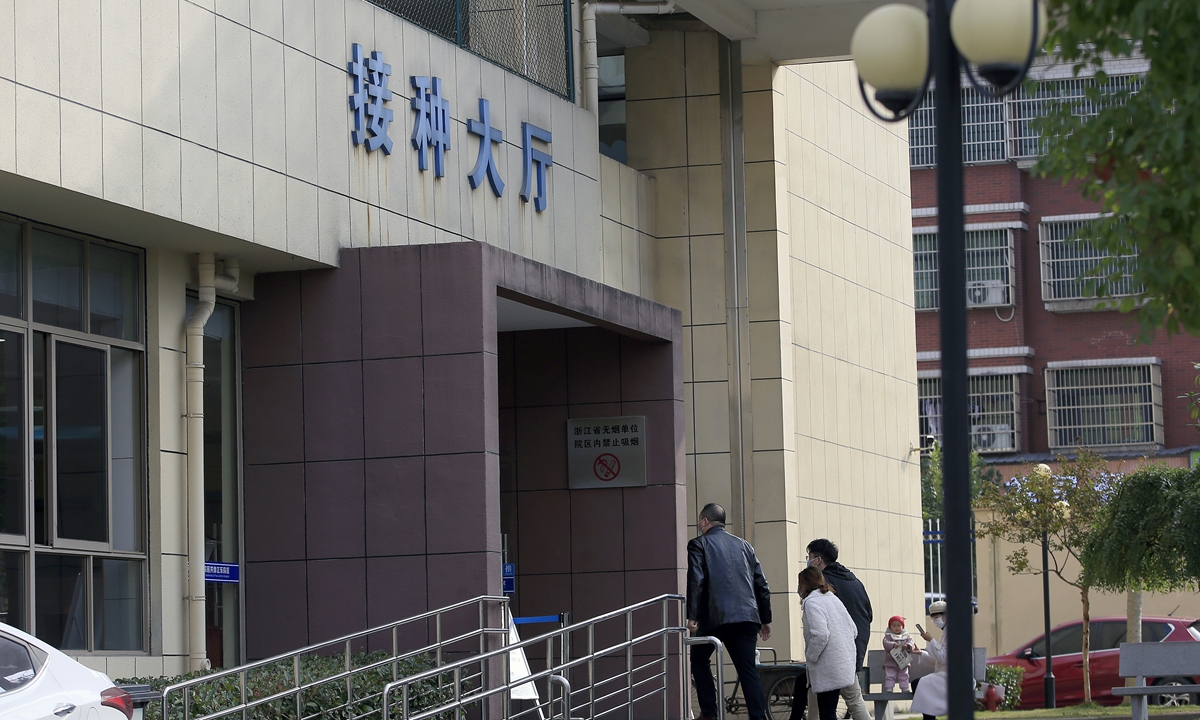28-day health management procedure announced for overseas arrivals launched in E. China’s Zhejiang

The vaccination center in Yiwu, East China's Zhejiang Photos: Yang Hui/GT
East China's Zhejiang Province has launched a complete 28-day health management procedure for arrivals from overseas countries and regions, the provincial authorities detailed at the press conference on Thursday after an imported reinfection COVID-19 case was reported in Hangzhou, the province's capital city, the previous day.
Given the new epidemic prevention and control situation, Zhejiang has started a "14+7+7" health management procedure for new arrivals to China from overseas countries and regions, which will include 14 days' centralized quarantine plus seven days at home quarantine in addition to another seven days' daily health monitoring.
During the procedure, arrivals will be required to take four nucleic acid tests and their co-habitants will also need to take a nucleic acid test.
Hangzhou reported an imported reinfection case of COVID-19 on Wednesday. The patient was confirmed as a silent carrier in the UK last April and tested negative after completing home quarantine.
He arrived in Hangzhou on January 2 and took a nucleic acid test on January 5 required by his company, the result of which turned out to be positive.
A total of 167 close contacts of the patient have been put under centralized quarantine and 313 general contacts have been under home observation.
The patient's workplace and the restaurants, cafes and public venues he had been to have been disinfected.
So far, a total of 480 samples from people involved and 309 samples from the environment have tested negative for COVID-19.
"This case, as well as the import-related asymptomatic infection spotted at the centralized quarantine site in Hangzhou last December, and the imported cold-chain food samples tested positive for COVID-19 spotted in Taizhou and Huzhou, are the results of closed-loop management under the normalcy of epidemic prevention and control," Chen Guangsheng, vice secretary-general of the provincial government said at the press conference, noting the mechanism will effectively eliminate the potential risks of the virus.
In terms of the management of imported cold-chain foods, Zhejiang has set up 28 centralized supervision warehouses for imported cold-chain foods with a total storage capacity of 67,000 tons.
Since December 25, 2020, imported cold-chain foods without customs disinfection certificates or standardized nucleic acid testing and disinfection certificates from outside the province have been transported to the centralized supervision warehouse for nucleic acid testing and complete preventive disinfection.

